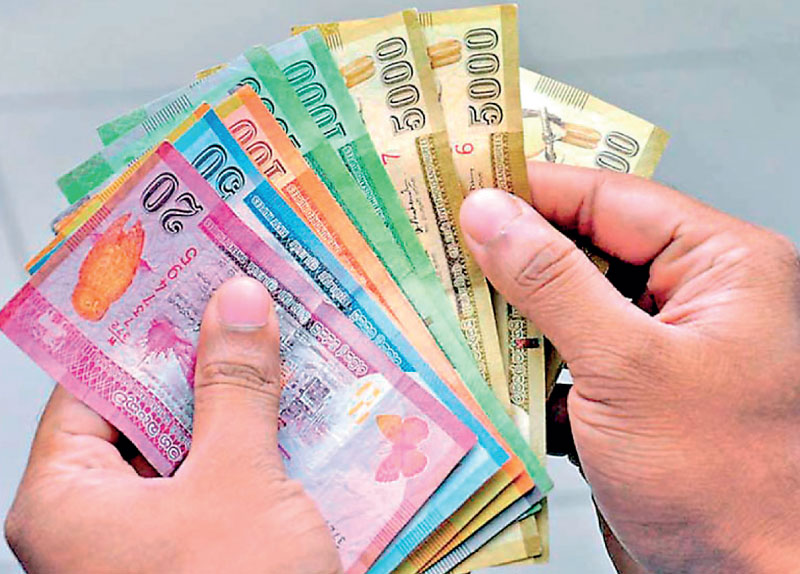Tuesday Feb 17, 2026
Tuesday Feb 17, 2026
Monday, 24 February 2025 00:24 - - {{hitsCtrl.values.hits}}

The SVAT system is designed to minimise corruption by reducing human intervention and enhancing transparency in tax processes
 The Simplified Value Added Tax (SVAT) system, a home-grown solution introduced in April 2011, has been a cornerstone of Sri Lanka’s taxation framework, particularly benefiting exporters and businesses engaged in specified projects. However, recent developments indicate significant changes on the horizon.
The Simplified Value Added Tax (SVAT) system, a home-grown solution introduced in April 2011, has been a cornerstone of Sri Lanka’s taxation framework, particularly benefiting exporters and businesses engaged in specified projects. However, recent developments indicate significant changes on the horizon.
Historical context and recent developments
The SVAT mechanism was established to streamline the VAT process, reduce administrative burdens, and alleviate cash flow problems for exporters. Over the years, it has undergone several amendments to enhance its efficiency and compliance.
In August 2023, a VAT Bill was issued suggesting the removal of SVAT from 1 January 2024. However, a Cabinet decision in September 2023 deferred this removal to 1 April 2025. The International Monetary Fund (IMF) in its June 2024 report has recommended building a robust VAT refund system to replace SVAT, aiming to improve VAT compliance and revenue collection.
The rationale behind SVAT
SVAT was introduced to address several key issues:
The system allows eligible businesses to issue SVAT vouchers to their suppliers, simplifying VAT transactions and ensuring a smoother flow of VAT refunds.
Concerns and recommendations
While the Government and the IMF are pushing for the repeal of SVAT, there are concerns about the potential negative impact on businesses, particularly small and medium enterprises (SMEs). The removal of SVAT could lead to increased costs, administrative hassle, delayed VAT refunds may lead to increase borrowing costs and cashflow inefficiencies, which may hinder investment and competitiveness.
In the author’s view, instead of abolishing SVAT, efforts should be made to improve the current system. This includes enhancing compliance, streamlining documentation requirements, and conducting regular audits to penalise non-compliant parties. The SVAT system, being unique to Sri Lanka, has the potential to be a model for other countries facing similar challenges with VAT refunds.
Budget speech and VAT Amendment Bill
In the 2025 Budget speech, it was announced that amendments to the VAT Act will be made to facilitate the transition from the Simplified Value Added Tax (SVAT) system to a risk-based refund system. To ensure the smooth operation of this new system, a pilot project will be implemented to issue refunds through the Revenue Administration Management Information System (RAMIS), subject to conditions specified in the Risk Based Refund Scheme by the Commissioner General of Inland Revenue (CGIR).
The VAT Amending Bill issued on 21 February 2025 has several amendments introduced to incorporate the provisions in relation to the above.
Cashless and corruption-free mechanism
Currently, SVAT is a cashless, seamless process with minimal opportunities for bribery and fraud. The SVAT system is designed to minimise corruption by reducing human intervention and enhancing transparency in tax processes. SVAT operates through a credit voucher system, where registered suppliers receive tax credits instead of cash refunds, thereby eliminating opportunities for fraudulent claims and bribery. So, instead of making actual cash payments for VAT and then waiting for refunds, registered suppliers receive tax credit vouchers. These vouchers can be used to offset their VAT liabilities, effectively eliminating the need for cash transactions. This supports for businesses to maintain a steady cashflow and to manage the financial burden effectively.
The SVAT incorporates several measures to prevent fraud and ensure transparency:
1. Credit voucher system: Reduces the risk of fraudulent refund claims.
2. Use of RAMIS: Allows for better tracking and monitoring of transactions.
3. Verification processes: Ensures only legitimate claims are processed.
4. Reduced human intervention: Minimises opportunities for bribery and corruption.
5. Regular audits and monitoring: Efficient periodic audits since all schedules are uploaded to RAMIS.
The largest VAT fraud in South Asia occurred in Sri Lanka in early 2000, resulting in a loss of approximately Rs. 357 million to the Inland Revenue Department as per publicly available data. This massive fraud involved unlawful VAT refunds being issued to non-existent companies, facilitated by false documentation. There is no doubt where cash refunds are involved the probability of fraud and corruption is also high. How will the policy makers and the tax administrators ensure that the VAT refund mechanism which will replace the SVAT will be free of fraud and corruption?
Challenges faced by exporters
In the Budget speech 2025, the President declared that the expectation for 2025 is for exports of goods and services to reach an all-time high of close to $ 19 billion. However, a review of the tax policy of the export sector raises the question of whether the country’s tax policy is aligned to motivate exporters to achieve this milestone. The corporate tax rate for the export of goods is 30%, while the export of services will now be taxed at 15% following the removal of exemptions. Despite the benefits of the SVAT system, the Government has decided to abolish it. Consequently, exporters will have to rely on timely VAT refunds from the Inland Revenue Department (IRD) to manage cash flows.
According to the law, the IRD is required to issue refunds within 45 days from the end of the month following the taxable period, subject to certain conditions. If these refunds are delayed, taxpayers will have no choice but to obtain bank borrowings for working capital funding. Excessive interest beyond a specified formula under Section 18 of the Inland Revenue Act cannot be deducted in the same year when computing income tax payable, potentially leading to additional income tax liability. The additional cost for resources and, more importantly, the time required to coordinate with the IRD to obtain refunds can also be challenging for taxpayers.
The author wishes to highlight a notice issued by the Inland Revenue Department on December 12, 2024, concerning VAT refunds for periods before 31 December 2015. The notice instructed taxpayers with valid, pending refund requests to submit a written request signed by the Managing Director to the Commissioner, Legacy Refunds, by 31 December 2024. The letter further emphasises that requests submitted after this date would not be considered. The notification is legally invalid as it contradicts the VAT law by denying refunds duly claimed in the VAT returns. This measure appears to be a tactic by the IRD to reject valid refund claims if taxpayers fail to submit the required letter by the specified deadline. How can the taxpayer rely on the new VAT refund mechanism when the IRD employs such measures to deny legitimate VAT refunds?
The Government must revisit the decision to abolish SVAT
Exporters are the growth engines of the economy. Continuing the SVAT system until digitalisation is complete and an efficient refund system is rolled out is the most appropriate path to allow exporters to focus on their business growth. With the abolishment of SVAT from 1 October 2025, now included in the VAT Bill, the Inland Revenue Department (IRD) has only six months to ensure the success of the pilot project for VAT refunds. The IRD has been struggling with refund backlogs of 20 years or more. Critical questions need to be addressed by policymakers before abolishing SVAT: Can the IRD overcome the challenges to ensure refunds are issued within the stipulated time period? What recourse do exporters have if refunds are not issued within the deadline? Will the Government extend the date to abolish SVAT if the refund mechanism is not properly established? Who will be accountable for the decision to abolish SVAT if the VAT refund mechanism is unsuccessful, and it detrimentally impacts the growth of the export sector?
A Government that recognises the significance of a cashless/digitised economy and is committed to a corruption-free society should reconsider the decision to abolish the SVAT mechanism. It is crucial to understand the reasons behind the move to dismantle such an efficient and transparent mechanism and to evaluate the rationale for this decision.
The primary challenge for policymakers and tax administrators is to establish a robust, corruption-free refund mechanism. For over 25 years, Sri Lanka has faced difficulties in implementing efficient tax refund systems for both VAT and income tax.
While it is a temporary relief that the abolishment of SVAT is delayed until October 2025, it is crucial for policymakers to carefully consider the implications of repealing SVAT. The Government must address these longstanding issues before proceeding with the abolition of SVAT. Addressing the concerns of businesses especially the export sector will be essential to maintaining economic stability and growth.
(The writer is Principal – Tax and Regulatory, KPMG.)